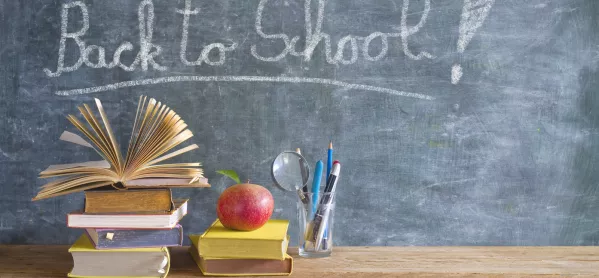Pupils in both primary and secondary should not have to physically distance when schools return despite “less clear” evidence about the safety of older students, according to scientific advice for the safe reopening of schools published today by the Scottish government.
If the coronavirus continues to be suppressed, pupils could return in August without physical distancing, the government’s education advisory group recommends, but teachers should remain two metres apart “wherever possible”, it says.
Teachers will need to wear masks only if they are face to face with pupils for more than 15 minutes and cannot remain two metres away, says the report, although any pupil or teacher wanting to wear a face covering should be able to do so.
Background: ‘Full time’ Scottish schools return planned for August
Opinion: Reopening Scottish schools: 5 key questions to answer
Listen: John Swinney talking about reopening schools
News: Part-time start for Falkirk pupils
Although the advisers’ report supports relaxation of physical distancing for primary school pupils, it warns that “the evidence is less clear for older pupils” - but the benefits of all children returning to school full-time outweigh the dangers “on the balance of known risks”, it says.
The report states: “We conclude that - subject to continued suppression of the virus and to surveillance and mitigations being in place - the balance of the evidence suggests that no distancing should be required between children in primary schools.
“The evidence is less clear for secondary schools but at present we would support the same approach being taken in secondary schools on the basis of the balance of known risks and the effectiveness of mitigation.”
Of the confirmed 18,365 Covid-19 infections up to 12 July, there were just 151 (0.8 per cent) positive cases in under-15s, according to the government’s figures, while no one under the age of 16 has died as a result of the disease.
The report recommends that everyone entering school should be required to wash or sanitise their hands, along with an “increased emphasis” on hand hygiene and surface cleaning throughout the day.
It advises certain school activities such as drama, gym classes, assemblies and choirs should not be immediately reintroduced because of the higher risk of virus transmission.
Schools should also take a “zero-tolerance” approach to coronavirus symptoms - a fever, cough and a loss of taste or smell - and strictly comply with the government’s Test and Protect contact tracing system, it says.
Advice for school transport strongly recommends pupils travel to school on foot, bike or scooter where possible.
Dedicated school transport, such as a school bus, would be considered an “extension of the school estate” where distancing measures were not required.
If pupils use public transport, then the government’s guidance on physical distancing must be followed and face coverings remain mandatory for everyone aged over 5.
Education secretary John Swinney said: “This scientific advice will inform the way schools can reopen safely from 11 August, if infection rates continue to remain low.
“The Education Recovery Group, which comprises local authorities, parent representatives and teachers’ organisations and trade unions, has been developing plans for how to open schools safely for everyone.
“We are considering this advice as we develop comprehensive guidance which will give confidence to our school communities that the safety and wellbeing of children, young people and staff is ensured as we welcome them back.
“Ensuring the highest quality education for our young people, in a safe environment, must be a priority for us all and I know that everyone is committed to making sure that children’s education is not adversely affected in the longer term.”





